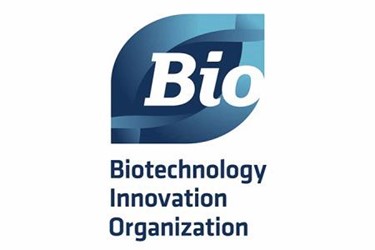A Behind The Scenes Look Into Planning For BIO 2018 — Thus Far

By Rob Wright, Chief Editor, Life Science Leader
Follow Me On Twitter @RfwrightLSL

On Dec. 4 and 5, 2017, the BIO education planning committee met in Boston. The purpose was to review the more than 400 proposals submitted during BIO’s annual Call for Sessions & Speakers (September 14 – October 12, 2017). Over the two-day period BIO’s education planning team, along with the 57 volunteers who make up this year’s education planning committee, conducted 12 lengthy conference calls (for those who could not attend in person) toward development of the 2018 BIO International Convention educational program that will take place June 4 – 7 at the Boston Convention Center.
But this wasn’t the first time these submissions were reviewed and discussed. Prior to Thanksgiving, subcommittee members reviewed, took notes, graded, made suggestions, and participated in conference calls to discuss the following 12 educational tracks:
|
|
|
|
|
|
|
|
|
|
|
|
Please note, the above list is not the final list of topics, and BIO has a number of additional tracks under development.
And while those on the outside might think the educational planning committee left Boston with a finalized plan for which session proposals to accept, let me dispel you of that notion. For though we did leave with a plan for next steps in the planning process, the 2018 educational program won’t be complete until sometime in early 2018. I believe this to be a good sign for those planning to attend educational sessions when BIO comes to Boston. Because despite educational program planning committee members being volunteers, you can be assured these individuals aren’t “mailing it in.” Further, it was very evident that the committee (in its entirety) did not show up with the intent of rubber-stamping sessions “as good to go.” For thoughtful input on how a session might be better positioned to align with its intended track, and/or specific recommendations for who might be good speakers to round out a particular panel was provided on every session considered — across all disciplines!
On behalf of BIO, fellow committee members, and fellow co-chairs, I’d like to thank and recognize everyone who took the time to submit session proposals for consideration in BIO 2018. In my opinion, this year’s submissions (on the whole) were very well done. In addition, I’d like to thank the subcommittee for all their hard work in reviewing and grading of session submissions, which for the BD and Finance track involved more than 90 proposals! I’d also like to recognize the BIO educational planning team (i.e., Sarah Arth, Bernie Fallon, Stephanie Haines, and Sarah Maki) for all their hard work to ensure our meetings were well organized and productive.
Speaking of being productive, prior to the December Boston meeting, I contacted 2018 planning committee members, Tom Hubbard, VP of policy research, Network for Excellence in Health Innovation (NEHI); and Patricia Sinatra, managing director, Vector Strategic Advisors. The goal was to provide additional insights on educational planning for 2018, as well as to help those who might be thinking of submitting a proposal for BIO 2019.
What Did You Think About The Quality Of Session Submissions For Bio 2018?
Tom Hubbard: Personally I think the most encouraging sign for the Value, Patient Access and Reimbursement subcommittee is some of the proposals are coming from people doing some of the most innovative thinking about patient access, payment for value and affordability, and how these come together in new payment models. Our goal is to work with proponents to make sure that the final presentations in June 2018 reflect what might (or might not) be the major developments in novel contracting that could happen between now and then.
What Advice Do You Have For Session Submitters For BIO 2019?
Patricia Sinatra: My recommendations are as follows:
- People submit proposals that reflect their personal or professional interests or “what they consider valuable or important.” While this is understandable, it is important to consider the audience. People come from a variety of professional backgrounds, and as such, I would try to keep the topic broad enough to provide a compelling overview of the technology, current applications, challenges, and associated opportunities. Avoid very narrow topics or promotional presentations. We get a lot of oncology submissions, but there are other areas of significant unmet medical need with less competition such as various orphan indications, eye and hearing disorders, and senescence (i.e., the process of becoming old) where next generation therapeutics have enormous potential.
- As our business is increasingly global, I would encourage internationally based companies to participate.
- Lastly, if you plan on moderating a session, it is important the participating panel be confirmed in advance. Avoid using a “placeholder” approach. The moderator and panelists can be key draws to the program.
We look forward to continuing our journey of developing an educational program at BIO 2018 that will benefit those who matter most — attendees.
